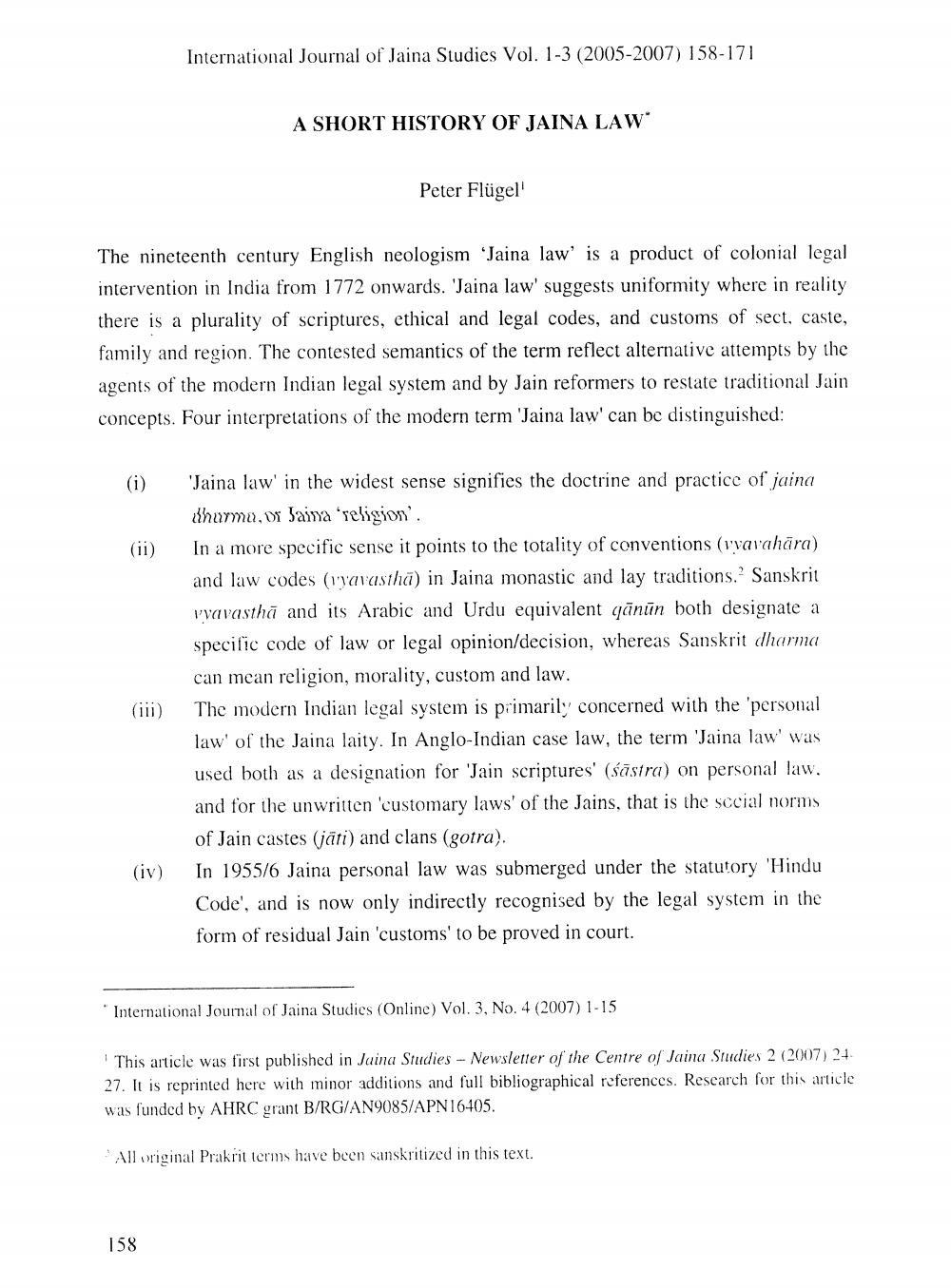________________
International Journal of Jaina Studies Vol. 1-3 (2005-2007) 158-171
A SHORT HISTORY OF JAINA LAW
Peter Flügel
The nineteenth century English neologism Jaina law' is a product of colonial legal intervention in India from 1772 onwards. 'Jaina law' suggests uniformity where in reality there is a plurality of scriptures, ethical and legal codes, and customs of sect, caste, family and region. The contested semantics of the term reflect alternative attempts by the agents of the modern Indian legal system and by Jain reformers to restate traditional Jain concepts. Four interpretations of the modern term 'Jaina law' can be distinguished:
(i)
(ii)
'Jaina law' in the widest sense signifies the doctrine and practice of jaina thuma, o Jaiya 'religion'. In a more specific sense it points to the totality of conventions (vvavahāra) and law codes (yavasthā) in Jaina monastic and lay traditions. Sanskrit vvavastha and its Arabic and Urdu equivalent qānūn both designate a specific code of law or legal opinion/decision, whereas Sanskrit dharma can mean religion, morality, custom and law. The modern Indian legal system is primarily concerned with the 'personal law' of the Jaina laity. In Anglo-Indian case law, the term 'Jaina law' was used both as a designation for 'Jain scriptures' (śāstra) on personal law. and for the unwritten 'customary laws' of the Jains, that is the sccial norms of Jain castes (jāti) and clans (gotra). In 1955/6 Jaina personal law was submerged under the statutory 'Hindu Code', and is now only indirectly recognised by the legal system in the form of residual Jain 'customs' to be proved in court.
(iv)
* International Journal of Jaina Studies (Online) Vol. 3, No. 4 (2007) 1-15
This article was first published in Jaina Studies - Newsletter of the Centre of Jaina Studies 2 (2007) 24 27. It is reprinted here with minor additions and full bibliographical references. Research for this article was funded by AHRC grant B/RG/AN9085/APN 16405.
All original Prakril terms have been sanskritized in this text.
158




